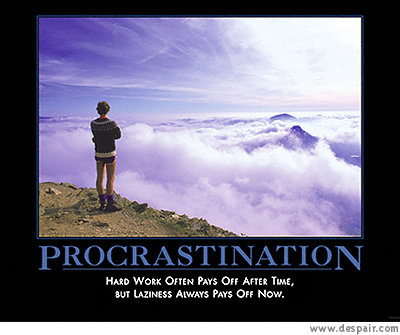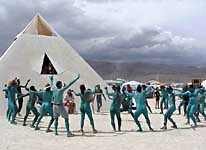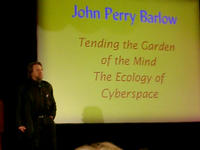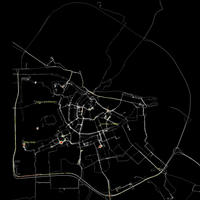|
This is my dynamic, frequently updated homepage. This is a NewsLog, also known as a WebLog or Blog.
Everything is evolving, so don't assume too much.
People to watch:
Adina Levin
Andrius Kulikauskas
Britt Blaser
Catherine Austin Fitts
Chris Corrigan
Clay Shirky
Dan Gillmor
Dave Pollard
David Allen
David Weinberger
Dewayne Mikkelson
Dina Mehta
Doc Searls
Elisabet Sahtouris
Elizabeth Lawley
Euan Semple
Florian Brody
Frank Patrick
Gen Kenai
George Dafermos
George Por
Graham Hancock
Greg Elin
Hazel Henderson
Heiner Benking
Inspector Lohman
Jean Houston
Jerry Michalski
Jim McGee
Jim Moore
John Abbe
John Perry Barlow
John Robb
Joi Ito
Jon Husband
Jon Lebkowsky
Jon Udell
Jonathan Peterson
Judith Meskill
Julian Elvé
Julie Solheim
Kevin Marks
Lawrence Lessig
Leif Smith
Letecia Layson
Lilia Efimova
Lisa Rein
Marc Canter
Mark Oeltjenbruns
Mark Pilgrim
Mark Woods
Martin Dugage
Martin Roell
Mary Forest
Matt Mower
Max Sandor
Michael Fagan
Mike Owens
Mikel Maron
Mitch Kapor
Mitch Ratcliffe
Nathalie dArbeloff
Netron
Noam Chomsky
Paul Hughes
Peter Kaminski
Phil Wolff
Philippe Beaudoin
Ray Ozzie
Raymond Powers
Rebecca Blood
Roger Eaton
Roland Tanglao
Ross Mayfield
Scott Lemon
Sebastian Fiedler
Sebastien Paquet
Skip Lancaster
Spike Hall
Steven Johnson
Stuart Henshall
Thomas Burg
Thomas Madsen-Mygdal
Thomas Nicholls
Timothy Wilken
Todd Suomela
Tom Atlee
Tom Munnecke
Tom Tomorrow
Ton Zijlstra
Lionel Bruel
Loic Le Meur
Nancy White
Mark Frazier
Merlin Silk
Robert Paterson
Colby Stuart
Nova Spivack
Dan Brickley
Ariane Kiss
Vanessa Miemis
Bernd Nurnberger
Sites to watch:
Electronic Frontier Foundation
Co-intelligence Institute
Free Expression Network
Collective Intelligence
Action without borders
Manufacturing Dissent
Explorers Foundation
Disclosure Project
ThoughtsOnThinking
Forbidden Science
Emergent by Design
Greater Democracy
Global Ideas Bank
Independent Media
Space Collective
Friendly Favors
Escape Velocity
Disinformation
Collective Web
WorldChanging
YES Magazine
Disinfopedia
NotThisBody
MetaFilter
Webcamorama
BoingBoing
Smart Mobs
Do No Harm
Imaginify
FutureHi
Openworld
Nanodot
HeadMap
Rhizome
Absara
Edge
Junto
French:
Emmanuelle
Manur
Elanceur
Loeil de Mouche
IokanaaN
Blog d'Or
Le Petit Calepin
GeeBlog
Absara
Guillaume Beuvelot
Ming Chau
Serge Levan
Jean Michel Billaut
C'est pas Mécanique

I live in Toulouse, France where the time now is:
01:08
Unique Readers:

Primarily
Public Domain
Everything I've written here is dedicated to the
Public Domain.

The quotes from other people's writings, and the pictures used might or might not be copyrighted, but are considered fair use. Thus, overall, this weblog could best be described as being:
Primarily Public Domain. |
Syndication:
 ![Validate my RSS feed [Valid RSS]](http://www.newciv.org/pic/valid-rss.png)
|
| Thursday, December 12, 2002 |  |
|
|
|
 I just realized that people I knew who had websites and who died, and who's websites STILL are up, seem, well... less dead. My referer logs still show quite a few people coming from Sasha Chislenko's Great Thinkers and Visionaries page. Which is still excellent, and I'm glad somebody is keeping it up in his memory. And somehow he doesn't quite feel gone, because his website is still up. Nicholas Albery died suddenly too, but the Global Ideas Bank is still continuing as before in other people's capable hands, and is still on my server. But somehow, because our relationship was virtual, I wouldn't be terribly surprised if I suddenly got an e-mail from Nicholas. Another dear friend with a site on my server, Diane Dornbusch, is also no longer with us. And I haven't even cancelled these people's accounts on NCN or anything, because I didn't know what to do with them. Their accomplishments still stand, their websites are still up. You just can't send them e-mail. I just realized that people I knew who had websites and who died, and who's websites STILL are up, seem, well... less dead. My referer logs still show quite a few people coming from Sasha Chislenko's Great Thinkers and Visionaries page. Which is still excellent, and I'm glad somebody is keeping it up in his memory. And somehow he doesn't quite feel gone, because his website is still up. Nicholas Albery died suddenly too, but the Global Ideas Bank is still continuing as before in other people's capable hands, and is still on my server. But somehow, because our relationship was virtual, I wouldn't be terribly surprised if I suddenly got an e-mail from Nicholas. Another dear friend with a site on my server, Diane Dornbusch, is also no longer with us. And I haven't even cancelled these people's accounts on NCN or anything, because I didn't know what to do with them. Their accomplishments still stand, their websites are still up. You just can't send them e-mail.
When I die, I'd certainly want to continue existing in cyberspace. But now, my point is, a weblog is not necessarily a good format to exist in, if you aren't updating it any longer. It is not a very eternal format. It deserves to be preserved as a historical resource, but if not seen in relation to fresh material, it gets to look dated really quickly.
So, if the material in a weblog could flow, not only into a chronological and categorized and indexed archive, but into something like a mind map. Maybe not all of it, and maybe not looking the same, but I want something that allows me to fill out a mind map of what I'm about and what I've learned, in the same breath I use for posting in my log. It needs to feel integrated, but it would flow into two very different presentation formats. And one of them will be of more eternal value than the other. Maybe, if I will no longer be posting live material, somebody can flick a switch, and it is a different view that is presented as the front to my weblog. Instant Memorial Library, rather than Faded Newspaper of Last Year.
[ Knowledge | 2002-12-12 01:53 | | PermaLink ] More >
|
|
|
|
 A very appropriate message on behalf of the United States of America, to explain and apologize about what has been going on. Great animation. Must see. A very appropriate message on behalf of the United States of America, to explain and apologize about what has been going on. Great animation. Must see.
[ Inspiration | 2002-12-12 18:06 | | PermaLink ] More >
|
|
|
|
Jason Eric Smith, a future high school history teacher, was scammed out of his $3000 Apple Powerbook on eBay. But Jason didn't just take it lying down, even though the police pretty much told him to forget about it. Read the great tale about how he involved the whole Mac community, went to great lengths to track down the guy, got good help from a number of people, and with much trouble found a law enforcement person who was willing to act on it, and the guy was arrested, and charged with a whole series of crimes. A story about the power of a network of good people, and a good read at that.
[ Inspiration | 2002-12-12 18:40 | | PermaLink ] More >
|
|
| Wednesday, December 11, 2002 |  |
|
|
|
 From Tom Munnecke: From Tom Munnecke:to quote Freeman Dyson: "To help the poor from "the top down" is least likely to succeed. But science and technology are concentrated at the top, making top down the method of choice for those in power. The challenge, he said, is to find ways to help people by providing science and technology from "the bottom up." Â…Three successful "bottom up" approaches described by Dyson share an important trait: As they succeeded, they spread quickly. Dyson calls this 'autocatalysis' -- a chemistry term meaning that as a chemical reaction proceeds, it automatically accelerates. When, for example, British farmers in the 1950s began using drying sheds to keep their harvests dry, the technology spread rapidly. "As soon as the sheds were shown to be effective, every farmer had to have one," Autocatalysis is a "key virtue to look for in any technology that claims to improve human welfare on a large scale," he added."
He introduces two profound questions:
1. How do we improve human welfare on a global scale?
2. What energy could 'automatically accelerate' to fuel this improvement?
It seems to me that we can address #1 above by applying our knowledge of scale free networks to create a cascade of uplift. To do so, however, we need to figure out how to talk about uplift. One way to do this is to create an Uplift Pattern Language (UPL) which allows us to talk about patterns of uplift. This is modelled after Christopher Alexander's work on architectural patterns which has been adopted in the software community for software Pattern Languages. The Jini Community Pattern Language is an example of this applied to a community. The Uplift Pattern Language would define patterns of uplift and their contexts, within a benegnostic framework.
One application of the UPL would be to create Virtue Viruses, which would be self-propagating, self-organizing activities/messages/events which would exploit the most powerful uplift patterns. Seligman's work on Values in Action provides some fuel for thinking about this. This also relates to Hirshmann's "Finding where Virtue is afoot" quoted by David Ellerman.
[ Patterns | 2002-12-11 05:17 | | PermaLink ] More >
|
|
|
|
 "Every day we slaughter our finest impulses. That is why we get a heart-ache when we read those lines written by the hand of a master and recognize them as our own, as the tender shoots which we stifled because we lacked the faith to believe in our own powers, our own criterion of truth and beauty. Every man, when he gets quiet, when he becomes desperately honest with himself, is capable of uttering profound truths. We all derive from the same source. There is no mystery about the origin of things. We are all part of creation, all kings, all poets, all musicians; we have only to open up, to discover what is already there." -- Henry Miller "Every day we slaughter our finest impulses. That is why we get a heart-ache when we read those lines written by the hand of a master and recognize them as our own, as the tender shoots which we stifled because we lacked the faith to believe in our own powers, our own criterion of truth and beauty. Every man, when he gets quiet, when he becomes desperately honest with himself, is capable of uttering profound truths. We all derive from the same source. There is no mystery about the origin of things. We are all part of creation, all kings, all poets, all musicians; we have only to open up, to discover what is already there." -- Henry Miller
[ Inspiration | 2002-12-11 05:30 | 0 comments | PermaLink ]
|
|
|
|
 I need a piece of software, or a pattern or structure, for solidifying ideas. For putting more meat on something that starts out vague or abstract. Let's say I decide I'm interested in "Patterns of Upliftment" or "Communities of Virtue", but I might not even quite know what that means. Then, when I go through life, or through the web, I might notice "Aha, that's an example of ___" or "That's a good definition of ___" or "Oh, those people are studying ___". And I want to file it with my focus subject. It should be in a format I can easily share, on a webpage, so others can come along and see the idea getting more substantial, and maybe contribute to it. Well, there is Wiki-Wiki, which allows easy posting and updating by multiple people. But I suppose I'm looking for something that actually guides me towards a convergence, a clarification or solidification of the subject matter. A Wiki-Wiki would tend to encourage divergence, creating new branches. A piece of paper doesn't work, because I can't find the original sheet again when I happen to run into a piece of the puzzle I'm trying to assemble. I need a piece of software, or a pattern or structure, for solidifying ideas. For putting more meat on something that starts out vague or abstract. Let's say I decide I'm interested in "Patterns of Upliftment" or "Communities of Virtue", but I might not even quite know what that means. Then, when I go through life, or through the web, I might notice "Aha, that's an example of ___" or "That's a good definition of ___" or "Oh, those people are studying ___". And I want to file it with my focus subject. It should be in a format I can easily share, on a webpage, so others can come along and see the idea getting more substantial, and maybe contribute to it. Well, there is Wiki-Wiki, which allows easy posting and updating by multiple people. But I suppose I'm looking for something that actually guides me towards a convergence, a clarification or solidification of the subject matter. A Wiki-Wiki would tend to encourage divergence, creating new branches. A piece of paper doesn't work, because I can't find the original sheet again when I happen to run into a piece of the puzzle I'm trying to assemble.
[ Patterns | 2002-12-11 15:37 | | PermaLink ] More >
|
|
|
|
 According to BBC, web browsing on mobile phones is working out great for farmers and small vendors in Senegal, who can look up valuable market information. According to BBC, web browsing on mobile phones is working out great for farmers and small vendors in Senegal, who can look up valuable market information. Browsing web pages using a mobile phone may not be very popular in Europe, but it is catching on among canny market traders in Senegal.
The snappily-named Wireless Application Protocol was launched to much fanfare in Europe over two years ago. But has not won many fans, despite the fact that most handsets can use it.
But Senegalese market traders are proving that the technology does have its uses thanks to a project run by Manobi, a joint venture run by French and Senegalese entrepreneurs.
Manobi uses teams to gather information about the prices of foods and goods being sold in the markets in and around Dakar.
[ Technology | 2002-12-11 23:59 | | PermaLink ] More >
|
|
| Tuesday, December 10, 2002 |  |
|
|
|
 From Smart Mobs: BBC reports on the way microloans for running mobile phone services have changed the lives of low-income women in Bangladesh. Another sign that the mobile telephone is reaching people who have never participated in the PC or Internet revolutions. Watch for huge changes as even the least expensive mobile phones morph into miniature Internet terminals with significant onboard computing power. From Smart Mobs: BBC reports on the way microloans for running mobile phone services have changed the lives of low-income women in Bangladesh. Another sign that the mobile telephone is reaching people who have never participated in the PC or Internet revolutions. Watch for huge changes as even the least expensive mobile phones morph into miniature Internet terminals with significant onboard computing power. Hidden at the back of a pharmacy in rural Bangladesh, its rickety shelves piled high with medicines and condoms, is a thriving mobile phone business. The only sign of any kind of technology is a 20-metre bamboo pole, topped with what looks like a television aerial.
But this is the workplace of Jamirun Nesa, one of 50,000 Bangladeshi women making a living as Grameen phone ladies, as they are known.
Villagers flock to her phone booth in the region of Gazipur, two hours from the capital Dhaka, to use a mobile to call relatives, friends or business associates, paying for calls by the minute.
Life-changing
Grameen phone ladies provide villagers with a vital link to services such as hospitals and to relatives both at home and abroad, in a country with the lowest number of phones in South Asia.
The scheme was set up by one of Bangladesh's largest non-government organisations, the Grameen Bank. It offers women low-cost loans to set up a mobile phone exchange in villages where there are few if any landlines.
"I started the business as there was no other phone nearby," said Jamirun. "I saw it as a good business opportunity."
The mobile has literally changed her life.
"I get more respect now," she says. "Before people in the village wouldn't talk to me but they do now. "I also have more respect from my husband and family."
[ Culture | 2002-12-10 16:08 | | PermaLink ] More >
|
|
|
|
From Cory Doctorow: More from Sergey Brin, co-founder of Google, speaking at Supernova: "People who are thinking about committing suicide search Google for 'suicide.' Depending on what they find, they may or may not kill themselves. There are businesses that depend on the kind of results that searchers get from Google, but that's very secondary compared to searches like 'suicide.'" What they would get is this. Which is good. But is that because these were automatically selected as the most authoritative references on suicide, or did Google cheat a little and manually select these as the best to show? What would happen if the top page happened to be a collection of grisly pictures of people who killed themselves in spectacular ways?
[ Information | 2002-12-10 16:47 | | PermaLink ] More >
|
|
|
|
SmartMobs on Dan Gillmor talking about the future of journalism, and the power of networks:
"The second event Dan cited was the occasion last summer at Esther Dyson's PC Forum, held in Arizona, where Joe Nacchio, CEO of Qwest was, in Dan's words, "whining about how hard it was to run a telephone company these days." Dan blogged this while he was listening, and immediately got email from a reader in Florida who sent him a link disclosing that Nachio had sold $300 million of stock in the company he was helping to kill. Dan blogged it, and another participant in the Forum, Doc Searls, who was contemporaneously blogging the event, took Nachio to task for it, while Nachio was still standing at the podium. Here is Doc's version."
[ Organization | 2002-12-10 17:33 | | PermaLink ] More >
|
|
|
|
 I'm going to exercise my creative muscles by some lateral thinking every day. A good source of inspiration is the sometimes strange things that people search for in search engines that takes them to my page here. Somebody searched for "wallpaper concept cars". OK, if I try to be rational, they were probably just looking for a picture with concept cars to put on their computer's desktop. But wallpaper cars sounds much more intriguing as a new concept. I'm going to exercise my creative muscles by some lateral thinking every day. A good source of inspiration is the sometimes strange things that people search for in search engines that takes them to my page here. Somebody searched for "wallpaper concept cars". OK, if I try to be rational, they were probably just looking for a picture with concept cars to put on their computer's desktop. But wallpaper cars sounds much more intriguing as a new concept.
So, eh, you get these rolls. Dip them in replication glue. Wrap them around a shape you like, like a Ferrari you see standing on the street, while nobody's looking. The strip shrinkwraps and hardens, and you zip it off, and put wheels on it. Hm, maybe that's not such a great idea. So, then, how about cars made in strips, that slightly overlay each other. Or road lanes, that you roll out strip by strip, and flatten with a roller. Hm, I'll keep trying.
[ Inspiration | 2002-12-10 19:52 | | PermaLink ] More >
|
|
| Monday, December 9, 2002 |  |
|
|
|
 Google seems to think I'm somewhat of an authority on Underground Living. Which I'm not. I've always had a dream of having an underground house. And, also, I'm really fascinated by stories of exploration of underground caves or tunnels, such as the forgotten infra-structure under big cities. Google seems to think I'm somewhat of an authority on Underground Living. Which I'm not. I've always had a dream of having an underground house. And, also, I'm really fascinated by stories of exploration of underground caves or tunnels, such as the forgotten infra-structure under big cities.
Like, see this site about abandoned stations in the London Underground, including the one that Churchill used as a command center during WWII.
Sometimes it involves illegally sneaking around in the steam tunnels under universities and that kind of thing. Building-hacking, tunnel-hacking. See sites like Urban Explorer, Dark Passage, Forgotten New York, Virginia Tech Urban Exploration or Modern Ruins. Great fun.
[ Culture | 2002-12-09 14:01 | 0 comments | PermaLink ]
|
|
|
|

This company makes posters that are take-offs on those inspiring, motivational posters, with beautiful empowering pictures that one would see around the offices of big corporations, or that employees would be handed as achievement awards. So, these guys turn it around, and pretend that they do the opposite - give you pessimistic demotivators that sort of cut you down to size, or a little lower. But, aside from the fact that they're very funny, the brilliant and ingenious thing about them is that they're actually not mean and pessimistic at all, if you look a little deeper. On the contrary, they all seem to deliver some clever wisdom when you look at things a little deeper. Like that one there: "Hard work often pays off after time. But laziness always pays off now." Sure, why work hard when you can work smarter. Life is lived right now, not next week, so no big need to suffer. Or that one here on Indifference: "It takes 43 muscles to frown and 17 to smile. But it doesn't take any to just sit there with a dumb look on your face." And it has this picture of a majestic leopard who just lies there without moving a muscle. There's something zen about it all.
[ Inspiration | 2002-12-09 15:05 | | PermaLink ] More >
|
|
|
|
Steve Denning talks about the role of storytelling in transforming organizations. He has a book: The Springboard - How storytelling ignites action in knowledge-era organizations."I found that a certain sort of story enables change by providing direct access to the living part of the organization. It communicates complicated change ideas while generating momentum towards rapid implementation. It helps an organization reinvent itself.
Storytelling gets inside the minds of the individuals who collectively make up the organization and affects how they think, worry, wonder, agonize and dream about themselves and in the process create and recreate their organization. Storytelling enables the individuals in an organization to see themselves and the organization in a different light, and accordingly take decisions and change their behavior in accordance with these new perceptions, insights and identities.
The attractions of narrative are obvious. Storytelling is natural and easy and entertaining and energizing. Stories help us understand complexity. Stories can enhance or change perceptions. Stories are easy to remember. Stories are inherently non-adversarial and non-hierarchical. They bypass normal defense mechanisms and engage our feelings."
[ Knowledge | 2002-12-09 15:31 | | PermaLink ] More >
|
|
|
|
 ScienceaGoGo reports on a discovery in materials for solar cells. It is sort of technical, but in brief the discovery is that an alloy of indium gallium nitride can convert pretty much the full spectrum of our sunlight, from the near infrared to the far ultraviolet, into electrical current. If they succeed in making practical solar cells of the material, they promise to be rugged, inexpensive, and more efficient than anything seen before. ScienceaGoGo reports on a discovery in materials for solar cells. It is sort of technical, but in brief the discovery is that an alloy of indium gallium nitride can convert pretty much the full spectrum of our sunlight, from the near infrared to the far ultraviolet, into electrical current. If they succeed in making practical solar cells of the material, they promise to be rugged, inexpensive, and more efficient than anything seen before.
[ Technology | 2002-12-09 17:04 | | PermaLink ] More >
|
|
|
|
 A conference on our decentralized future is going on in Palo Alto right now. I would have liked to be there, but the price was outrageous - $1000 per day. Anyway, all the big names and visionary techies in weblogs and online collaboration are there as speakers and panelists. And that makes it rather interesting to follow, as all those guys are sitting with their WiFi connected laptops and updating their weblogs in close to real time. You can see an automatically updated list of them here, thanks to trackback technology that keeps track of who links to what. Doc Searls is saying many good things. I'm not sure what it adds up to, other than that there's obviously a lot of energy in the air, and decentralization and peer-to-peer and collaboration and anything wireless is good. A conference on our decentralized future is going on in Palo Alto right now. I would have liked to be there, but the price was outrageous - $1000 per day. Anyway, all the big names and visionary techies in weblogs and online collaboration are there as speakers and panelists. And that makes it rather interesting to follow, as all those guys are sitting with their WiFi connected laptops and updating their weblogs in close to real time. You can see an automatically updated list of them here, thanks to trackback technology that keeps track of who links to what. Doc Searls is saying many good things. I'm not sure what it adds up to, other than that there's obviously a lot of energy in the air, and decentralization and peer-to-peer and collaboration and anything wireless is good.
[ Information | 2002-12-09 22:16 | | PermaLink ] More >
|
|
| Sunday, December 8, 2002 |  |
|
|
|
I spent a last day at the Prophet's Conference today. Rather than recount all that people talked about, there's a slightly unexpected and useful lesson for me today. On how it is becoming increasingly hard to shut up the truth, and how one needs to be willing to have one's facts straight, be able to back up one's stories, and be in harmony with one's audience or collaborators. So, a couple of little useful disharmonious stories from today:
Barbara Marx Hubbard gave a stimulating speech about conscious evolution, and about the need for many groups and networks to work together on locating positive solutions. She also had a phone call with U.S. Congressman Dennis Kucinich during her speech, where he said some equally wise words. And I think he is an excellent person. But Barbara maybe hyped him up a little too much, and made some statements about how we all support him 100%. And after Barbara, her assistant Theresa delivered essentially a commercial about the online network on their website urging everybody to join, and again a statement was made about backing up Dennis Kucinich 100% in whatever he does. And a member of the audience then jumped up and started protesting angrily, but he was sort of shut up right away. And the whole segment was finished, but other audience members protested, and wanted to hear what that guy had to say. Which was mainly a point about not being able to trust the Democratic party, after all the garbage they've done. And it was quite easily digested and answered (by John Hagelin) and we moved on. But the point was, it wasn't possible to give a picture-perfect, positive presentation when even a single audience member had a burning disagreement.
Later on there was a speech by Drunvalo Melchizedek. Drunvalo always has wild stories about mystical experiences and sacred geometry and strange technologies. This time he wanted to talk about UFOs and extraterrestrials. Which is cool with me, as I would certainly also like to see the U.S. and other governments come clean with all the stuff they know, but aren't telling. But Drunvalo chose to talk about a book, "The Report on Unidentified Flying Objects", he had discovered under mysterious circumstances, which was a long lost and suppressed full account by Edward J. Ruppelt, the first head of Project Blue Book, which was investigating UFOs in the U.S., with lots of exact names and dates and everything. The book was published in 1956, but all copies mysteriously vanished, with no used book sources being able to locate even a single copy at this point. So, Drunvalo is publishing it, because it is so important and might blow the lid off the whole thing. So far so good. But this is 2002. An attentive and resourceful audience member, whom I'll leave anonymous, had used his laptop from his chair, over a wireless Internet connection, to research it a bit on the net while Drunvalo was talking. And in no time at all he found that the book was in no way lost, and it is, as a matter of fact, for sale on Amazon. And it has been reviewed and has 5 stars and so forth. So, what does that mean? Well, at best Drunvalo didn't check his facts, or he got misled somehow. But the point I want to make is, you can't get away with that.
So, there's some sort of lesson there, about not being able to keep the truth away from small groups of well-connected resourceful people, who are free to move around and self-organize. You can't just gloss things over and expect everybody to take you on your word. So, you better check your facts before you speak in mixed company, and you better be prepared to deal with any divergent opinions on the spot. At the same time, I notice that governments and media still are able to keep the truth away from large groups of people who are hypnotized by the fake world presented in the media, and they're still able to shut up dissenting voices. Hopefully that is about to change too.
[ Diary | 2002-12-08 23:59 | | PermaLink ] More >
|
|
| Saturday, December 7, 2002 |  |
|
|
|
 One thing John Perry Barlow pointed out is that people today often are unable to differentiate between information and experience. For example, the murder rate has been plummeting all over the U.S. for the past 20 years or so, and it is statistically very, very unlikely that you will be murdered. But the news media is reporting as if it is an all-pervasive problem. And a great many people will act as though it is, walking around every day being afraid of being murdered, despite that they live in a peaceful neighborhood, mowing the lawn and going to the store like everybody else, and nothing violent ever happens there. Their experience is totally different from the information given, but yet they believe the information, because it is delivered with a certain intensity. One thing John Perry Barlow pointed out is that people today often are unable to differentiate between information and experience. For example, the murder rate has been plummeting all over the U.S. for the past 20 years or so, and it is statistically very, very unlikely that you will be murdered. But the news media is reporting as if it is an all-pervasive problem. And a great many people will act as though it is, walking around every day being afraid of being murdered, despite that they live in a peaceful neighborhood, mowing the lawn and going to the store like everybody else, and nothing violent ever happens there. Their experience is totally different from the information given, but yet they believe the information, because it is delivered with a certain intensity.
Same thing with war in Iraq. Most Americans are in no possible way actually endangered by whatever weapons Saddan Hussein controls half-way around the planet. But the news tells them that it is a very real and imminent danger. So they go around being concerned about it, trying to think of solutions, as if it were really a part of their lives. The information is taken for real, even though their experience doesn't back it up in any way.
People forget to validate the information. I'm not just talking about validating and verifying the sources of the information, in terms of being good information sources. But simply that you check with your own life whether it fits with your experience. Does it match what I'm seing in front of me in my life? Not what I'm seeing on other channels, not what I hear people talking about, but what I'm actually seeing, hearing, feeling as actual events in the real world in front of me.
In all my life, I can only think of one person that I met, superficially, who later on got murdered. In that case by a family member. That's a very, very low percentage based on all the people I've met. It doesn't match up with the information the TV news gives me, that it is one of the biggest problems in my world.
Another side of the issue is that for many people, the information in the media might be preferable to the real thing. My 16 year old son is quite inclined to express that he finds it pointless to go to some event that he can watch on TV. Why go to the circus or to the Grand Canyon, if a TV show can get all the best shots, and edit it into a snappy format that never is boring, and where you don't have to drive for hours and stand in line. Is information better than experience? I think not, but many kids in the video game generation might have a different idea about it.
[ Information | 2002-12-07 16:50 | | PermaLink ] More >
|
|
| Friday, December 6, 2002 |  |
|
|
|
 Another great day at the Prophets Conference in Palm Springs. Several remarkable physicists for one thing. All delivering, based on straight science, the message that the world of separate, inert, solid objects and separate minds, is all a superficial illusion. In reality, the deeper you go into smaller particles, the more everything is inter-connected and interacting with everything else, and it is all non-local, meaning across all space and time, essentially. The profound consequences of this has not yet been widely understood, particularly not in areas where it is most needed, like politics. John Hagelin is a quantum physicist and the founder of the Natural Law Party. He is a crystal clear voice for bringing what we've learned about the universe into politics and into how we guide society along. Michio Kaku is a physics professor and equally brilliant in explaining complex things really simply, and applying the wisdom across disciplines. He points out that it is not enough to know that everything is one (a unified field) at the deepest level. That's pretty much a given by now. What makes a difference is whether there is harmony between the pieces or not. Are we in harmony with the planet we're living on? Another great day at the Prophets Conference in Palm Springs. Several remarkable physicists for one thing. All delivering, based on straight science, the message that the world of separate, inert, solid objects and separate minds, is all a superficial illusion. In reality, the deeper you go into smaller particles, the more everything is inter-connected and interacting with everything else, and it is all non-local, meaning across all space and time, essentially. The profound consequences of this has not yet been widely understood, particularly not in areas where it is most needed, like politics. John Hagelin is a quantum physicist and the founder of the Natural Law Party. He is a crystal clear voice for bringing what we've learned about the universe into politics and into how we guide society along. Michio Kaku is a physics professor and equally brilliant in explaining complex things really simply, and applying the wisdom across disciplines. He points out that it is not enough to know that everything is one (a unified field) at the deepest level. That's pretty much a given by now. What makes a difference is whether there is harmony between the pieces or not. Are we in harmony with the planet we're living on?
Russell Targ is also a physicist. He was one of the key players in the U.S. government's remote viewing program carried out for many years for the CIA. He did a simple, unscientific remote viewing test with the audience and we did relatively well. The key point, and the hardest part, is the ability to quiet one's mind. And the next point is to take the psychic impressions that appear when one focuses on the target, without succumbing to the temptation to guess, or analyze, or interpret. Typically the real stuff is the stuff one is surprised about, and that one hasn't seen before.
Stanislav Grof talked about his many years of research into non-ordinary states of mind. That is, more fluid, altered states of mind, where one has access to faculties one normally doesn't. Through hallucinogenics, meditation, breathing, ritual, sensory deprivation etc. It started back in the good old days when pharmaceutical companies would send out LSD as product samples to doctors, suggesting they might try it out and see what would happen. Mostly that led to a long exploration into what consciousness is.
The day ended with a small rave party of sorts. Drumming, dancing, stilt walkers, video from the Burning Man Opera and more.
[ Diary | 2002-12-06 23:59 | | PermaLink ] More >
|
|
| Thursday, December 5, 2002 |  |
|
|
|
 I'm at the Prophet's Conference in Palm Springs for a couple of days. A great group of speakers, and old friends to meet. Sofar, a great talk by John Perry Barlow on "Tending the Garden of Mind". He is just fabulous at weaving things together. This is not really his typical crowd, so it also became a bit of an education for the audience. In short, there are strong forces out there who would like to own the content of your mind, so get educated enough to do something about it. Nobody can own ideas, and it is all the same mind stuff that flows through all of us anyway. I'm at the Prophet's Conference in Palm Springs for a couple of days. A great group of speakers, and old friends to meet. Sofar, a great talk by John Perry Barlow on "Tending the Garden of Mind". He is just fabulous at weaving things together. This is not really his typical crowd, so it also became a bit of an education for the audience. In short, there are strong forces out there who would like to own the content of your mind, so get educated enough to do something about it. Nobody can own ideas, and it is all the same mind stuff that flows through all of us anyway.
After that there was a panel, with John, and Barbara Marx Hubbard, Gregg Braden, Nicky Scully, and some young people representing the conscious dance culture. Very stimulating fusion of energy there. Talk of more merging of rhythm and art into these more cerebral ideas. Talk of how we're all Natives of the Now, the new indiginous people.
[ Diary | 2002-12-05 19:55 | | PermaLink ] More >
|
|
|
|
 Paul Ray and Sherry Anderson were also giving separate speeches here at the Prophet's Conference. They're the authors of Cultural Creatives, and Paul invented the term based on his marketing research. Lately Paul has been talking and writing about a "new political compass", which comes out of a lot more surveys of many Americans. When I first read about it, I thought it was sort of boring, as it mainly is a conclusion that the left/right political spectrum doesn't cut it. But now I got the point much better. Most importantly, the study pinpoints specific characteristics of a group of people, which Paul puts as North on his political compass. He calls them New Progressives, says they're neither left nor right, but they're against big business and globalization, they're for the environment, for personal development. More willing to volunteer and take action than any other group, but nobody is noticing the group or speaking to them. In terms of politics and big media, that is. And the point is that if this group would recognize itself, it could be the most powerful force in U.S. politics. Or, rather, the breakthrough is not just that it might be a good thing, but Paul Ray shows that it IS the biggest force in U.S. politics, and it just doesn't know it yet. 45% of the people who vote. Paul Ray and Sherry Anderson were also giving separate speeches here at the Prophet's Conference. They're the authors of Cultural Creatives, and Paul invented the term based on his marketing research. Lately Paul has been talking and writing about a "new political compass", which comes out of a lot more surveys of many Americans. When I first read about it, I thought it was sort of boring, as it mainly is a conclusion that the left/right political spectrum doesn't cut it. But now I got the point much better. Most importantly, the study pinpoints specific characteristics of a group of people, which Paul puts as North on his political compass. He calls them New Progressives, says they're neither left nor right, but they're against big business and globalization, they're for the environment, for personal development. More willing to volunteer and take action than any other group, but nobody is noticing the group or speaking to them. In terms of politics and big media, that is. And the point is that if this group would recognize itself, it could be the most powerful force in U.S. politics. Or, rather, the breakthrough is not just that it might be a good thing, but Paul Ray shows that it IS the biggest force in U.S. politics, and it just doesn't know it yet. 45% of the people who vote.
[ Politics | 2002-12-05 23:59 | | PermaLink ] More >
|
|
|
|
Just before I needed to leave for Palm Springs, as I was trying to pay my rent, and being surprised that my account seemed to be empty, I realized that somebody had cleared it out through fraudulent credit card charges. About $1500 yesterday, which happened to be what I needed for my rent. Apparently somebody had appropriated the information for my wife's bank card. And now that we're examining the statements closely, it turns out that they have been stealing little amounts over the past couple of months, to buy access to an assortment of porn sites. But then in the past two days they decided to order a $999 copy of Microsoft Visual Studio, some other software I haven't identified, and some domain names. Rather bizarre, as that Microsoft program was ordered in my wife's name to be delivered to our address. And somebody has gone to the trouble of setting up fake e-mail accounts in a number of different places, in order to confirm these purchases, using parts of our names, the latest being funch@usa.net. Oh, the bank cancelled all the charges right away, but this is still a big pain. And an invasion of your privacy is a rather unnerving thing.
[ Diary | 2002-12-05 23:59 | | PermaLink ] More >
|
|
| Wednesday, December 4, 2002 |  |
|
|
|
Several of my good friends are trying to get around to starting their weblog, but have a hard time finding the time and courage to get going. Here is some good advice from Ross Mayfield from the Ryze Blog & Bloggers tribe:"They say you play soccer the way you are. I think blogging is similar to this self-organizing sport. You blog the way you are.
When confronted with the chronological format of a blog, the pressure to post is at first extreme. How do I start? What if I don't keep it up? Does this go on my permanent record? But the reality is there is no shame in an empty calendar. Post daily, weekly, monthly or occassionally. You blog when you can.
The question that is most personal is what to blog. As one blogger said, "Find a topic and own it." Finding focus is a sure time saver, but it also contributes to the medium, as its one of specialized voices. The more you post on your domain the better. You blog what you are.
The other part, indeed what this tribe is about, is community. When you have others reading, others you know, their feedback and their own posts spark your own. You don't blog alone.
Make a little plan on how you will start, just begin and you will find your rhythm." I guess what mostly can be intimidating is if one feels the pressure to produce posts very regularly, like every day, or one feels a pressure to share parts of oneself that one maybe isn't ready for. And, as he says, you can really post whenever it fits your rhythm. And you can post whatever makes sense for you. It doesn't have to be super-smart or super-personal or anything. And in the NewsLogs in NCN it should be even more gentle for you than in most other places, as you don't have to reveal it for the whole world right away, and you have a supportive community around you.
[ Information | 2002-12-04 16:38 | | PermaLink ] More >
|
|
|
|
 From Eclectricity: "The town of Bowie Maryland on the outskirts of Washington has built a fountain based on the mathematical ideas of the great mathematician Fibonacci. From Eclectricity: "The town of Bowie Maryland on the outskirts of Washington has built a fountain based on the mathematical ideas of the great mathematician Fibonacci.The fountain's design embodies an intimate link between Fibonacci numbers and an irrational number known as the golden ratio, (1 + sqrt[5])/2, or 1.6180339887. . . . Ratios of successive terms of the Fibonacci sequence get closer and closer to the golden ratio. For example, the ratio 55/34 is 1.617647. . ., and the next ratio, 89/55, is 1.6181818. . ., and so on. Successive ratios alternate in overshooting and undershooting the golden ratio by decreasing amounts."
[ Patterns | 2002-12-04 20:10 | | PermaLink ] More >
|
|
|
|
 John Poindexter is the U.S. Federal Information Czar. Not too long ago he was in prison for being an Iran-Contra conspirator. But now he's in charge of gathering information on all Americans. John Gilmore has an excellent demonstration for him of what it means to have your information pried into, as does the SF Weekly. John Poindexter is the U.S. Federal Information Czar. Not too long ago he was in prison for being an Iran-Contra conspirator. But now he's in charge of gathering information on all Americans. John Gilmore has an excellent demonstration for him of what it means to have your information pried into, as does the SF Weekly."The SF Weekly's column by Matt Smith in the Dec 3 issue points out that there may be some information that John M. and Linda Poindexter of 10 Barrington Fare, Rockville, MD, 20850, may be missing in their pursuit of total information awareness. He suggests that people with information to offer should phone +1 301 424 6613 to speak with that corrupt official and his wife. Neighbors Thomas E. Maxwell, 67, at 8 Barringon Fare (+1 301 251 1326), James F. Galvin, 56, at 12 (+1 301 424 0089), and Sherrill V. Stant (nee Knight) at 6, may also lack some information that would be valuable to them in making decisions -- decisions that could affect the basic civil rights of every American."
[ Politics | 2002-12-04 20:47 | | PermaLink ] More >
|
|
|
|
Tom Atlee: Dynamic Facilitation/Choice-creating: "'Dynamic facilitation', created by consultant Jim Rough, is a facilitation style that follows the energy of a group without constraining that energy to agendas or exercises. Using this style, someone can facilitate a highly co-creative process Jim calls 'choice-creating'." Lots of good stuff referenced from Tom's presentation. And see Jim Rough's site and book. The site has this chart on a page about self-organizing change: | Two Models of Change | | Manageable (Type 1) | Self-Organizing (Type 2) | | | e.g. a machine, monarchy, traditional meeting | e.g. a living organism, democracy, dialogue | | How order is determined | It is organized by someone
(extrinsic forces) - Build it / Do it... with no mistakes
- Closed boundaries
- Mostly stable with periodic disorder
| Order comes from within
(intrinsic energy) - Explore / trial and error
- Open boundaries
- Dynamic... between chaos and order
| | Thinking | Stay rational
....avoid the unconscious mind
- Decide on goals ... avoid feelings
- Discern and analyze
- Stop things from going wrong
| Be creative
....work with the unconscious mind - Energy driven... include feelings
- Generate and synthesize
- Seek what's right ... i.e. quality
| | Leadership | Manage to get results
- Can measure progress
- Emphasize extrinsic motivation
....(rewards) - Static process... step by step
| Facilitate the process - Use milestones to reflect on progress
- Emphasize intrinsic motivation
....(mission, vision) - Dynamic process... the flow
| | Orientation | Stop things from going wrong
- There are objective constraints
- All is measurable
- Eliminate chaos
| Help things go right - Expect breakthroughs
- Measuring can affect the process
- Some chaos is essential
|
[ Organization | 2002-12-04 22:54 | | PermaLink ] More >
|
|
| Tuesday, December 3, 2002 |  |
|
|
|
 Patterns interest me greatly. No, not on wallpaper or embroidery. The patterns that people or ideas or things might be arranged in, and what those different patterns mean, or what they allow to happen. That is essential to fields spanning from architecture to organization to language to magic. Patterns interest me greatly. No, not on wallpaper or embroidery. The patterns that people or ideas or things might be arranged in, and what those different patterns mean, or what they allow to happen. That is essential to fields spanning from architecture to organization to language to magic.
It is probably Chris Alexander who most brought forward that way of looking at patterns. He is an architect who wrote "A Pattern Language". It is at first glance a book about architecture, about building buildings. But really it is about the patterns of arranging things so that good things happen with and for people. It contains a 'vocabulary' of hundreds of detailed patterns and describes in detail why they are arranged that way, and what they accomplish. And what I find most interesting is the possibilities in taking a similar philosophy much further, and finding it in other places. The following is from a review of the book by audrey_the_librarian: "While others have noted that Alexander's ideas inspired changes in software engineering, I would also like to note that the author's ideas were, in turn, most likely informed by others, such as neuroscientist Karl Lashley and, in particular, linguist Noam Chomsky. Chomsky developed the idea of a generative grammar, composed of constituent symbols, a set of rules and a set of terminal elements, which together describe all possible sentences in a language. This was considered revolutionary at the time and is quite similar to Alexander's characterization of his patterns, described as a context combined with a system of forces or rules generating an infinite number of solutions in the form of sets of specific design elements. That configuration, in turn, becomes the context for another pattern. The theory's dynamism and scalability render it very powerful indeed.
I think another interesting approach to this philosophy would be to reverse engineer our own environment. To say, Obviously there is a Pattern Language at work in the larger world in which we live, and it is decidedly in opposition to what Mr. Alexander and others, including myself, believe is preferred. What are the rules of that language? What is the context within which those elements operate? The author codifies a desirable Pattern Language. I'd like to see his principles used to turn an eye toward decodifying our own milieu. This is the kind of book that leads one to think and imagine, and isn't that a wonderful thing?" Yes, indeed, reverse engineering and decodifying the world we live in, to be able to talk about its patterns - that would be a very good thing.
[ Patterns | 2002-12-03 15:39 | | PermaLink ] More >
|
|
|
|
 In an experiment in Amsterdam lots of the city's inhabitants were equipped with GPS (Global Positioning System) devices for two months, in order to make a realtime map of the city. The map is created exclusively from the accummulated movements of individuals. And, of course, people who ride bicycles create different maps from people in cars or subways. In an experiment in Amsterdam lots of the city's inhabitants were equipped with GPS (Global Positioning System) devices for two months, in order to make a realtime map of the city. The map is created exclusively from the accummulated movements of individuals. And, of course, people who ride bicycles create different maps from people in cars or subways.
[ Patterns | 2002-12-03 19:57 | | PermaLink ] More >
|
|
|
|
Lawrence Lessig talks about the 1976 Copyright Act which, amongst other things, greatly extended the previous length of copyrights. A 1998 U.S. law extended them further. See timeline. Big publishers and media companies are perfectly happy with that, wanting to keep their own copyrights for as long as possible, claiming exclusive rights would be the only way of assuring that the content would get distributed. Nowadays, with the Internet, that would in many areas be a blatant lie. For example, the U.S. Copyright Office and IMBD say there are close to 37,000 movies released in the period 1927-46. Of those only 2,480 are available in any format, which is 6.8%. In other words 93.2% is not available, because it is owned exclusively be somebody who doesn't see any commercial interest in distributing it. As Lessig asks: "Does anyone really doubt the public domain wouldn't do better?"
[ Knowledge | 2002-12-03 23:59 | 0 comments | PermaLink ]
|
|
<< Newer stories Page: 1 ... 79 80 81 82 83 ... 97 Older stories >> |
|

This is a collage of things that catch my eye, things that need to be said, and stuff I really care about
TRUTH
BEAUTY
FREEDOM
LOVE
TECHNOLOGY
|
| Mon | Tue | Wed | Thu | Fri | Sat | Sun |
|---|
|
|
|
|
|
|
1 |
| 2 |
3 |
4 |
5 |
6 |
7 |
8 |
| 9 |
10 |
11 |
12 |
13 |
14 |
15 |
| 16 |
17 |
18 |
19 |
20 |
21 |
22 |
| 23 |
24 |
25 |
26 |
27 |
28 |
|
|




